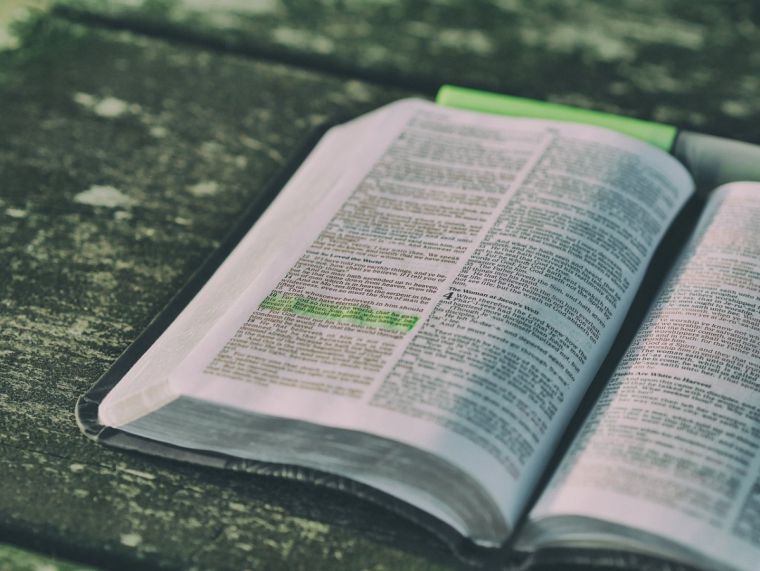Ecclesiastes 4: Oppression, envy and contentment
Jordan Peterson's bestselling 12 Rules for Life is an unusual self-help book. It talks about sin and the fact that life actually is suffering. It doesn't appear very cheerful – but it is realistic. It's why I prefer the Blues to Britney – reality is a whole lot more helpful.
Ecclesiastes 4: 1-6 moves on from chapter 3's consideration of the naked ape and eternity.

Socrates tells us: 'The unexamined life is not worth living.' For us to examine our lives we need to use four books: the Bible, the book of your own heart, the book of nature and the book of humankind. The Preacher considers:
1. The tears of the oppressed (1-3)
Oppression is a fact. We can see it. There is oppression and exploitation in government and in the law courts. Might overcoming right. Think of the people in Syria, or the Rohinga in Myanmar, or Christians in North Korea.
There is pain and sorrow in the lives of innocent people. There is no comfort from those who could and should have offered comfort. There was no one to stand with them and to help them. The Kurds must feel betrayed. The West used them to defeat ISIS and now they are being attacked by the Turks – and not a finger lifted to help.
How do we face the reality of oppression? The Christian does not have the right to turn away from the suffering of the oppressed. The Bible emphasises it – high interest rates, corrupt weights and measures, and oppressive estate agents are all mentioned. In fact the Preacher feels it so much that he argues he would be better off dead. Such despair is reflected elsewhere in the Bible: 'May the day of my birth perish, and the night it was said, "A boy is born!" That day – may it turn to darkness; may God above not care about it; may no light shine upon it. May darkness and deep shadow claim it once more; may a cloud settle over it; may blackness overwhelm its light' (Job 3: 3-5).
Interestingly Buddhism accepts that it would have been better not to have been born than to have experienced oppression.
2. The Motivation of Envy (4-6)
Solomon now moves from the law courts to the workplace and the marketplace. And here he was surprised. He saw envy. This can be understood in two ways. Firstly the man who worked hard was envied by his companions. He prospered and got on well and people were jealous. And secondly that envy was a motivation to work. Solomon extolled the virtues of hard work but was astounded at the motivation. In the competitive society the motivation for work is envy. Not the desire to produce something beautiful, not the desire to help people but rather to compete and stay ahead of the game. Competition is everything. Oppression obviously damages relationships. So does envy but more subtly: 'A heart at peace gives life to the body, but envy rots the bones' (Proverbs 14:30).
Verse 4 is saying that a large amount of our effort stems from our envy of our neighbours. We live in a capitalist society where the government wants to reward risk-takers (those who take risks with other people's money) and competition. Much advertising is based upon the creation and exploitation of envy. But what about the motivation for doing something because it is good, beautiful or helpful, rather than because it earns me more money or keeps me ahead of my neighbours? Covetousness, competition and envy go together. Greed is not good.
Verse 5 is the opposite of verse 4. Instead of rivalry there is withdrawal, a refusal to engage with life and society. Here is laziness. Solomon is now studying the opposite of the hard worker: 'A little sleep, a little slumber, a little folding of the hands to rest – and poverty will come on you like a bandit and scarcity like an armed man' (Proverbs 6: 10-11). What the teacher says about this is that it leads to self-cannibalism. He consumes his own flesh.
The hard-working man was working for himself. The lazy man was living off others for pleasure. Is there no other way? Is it really the case that society demands oppression, competition, envy or laziness? No. The Christian solution is contentment. One handful is enough; two handfuls is more than we can cope with. It is possible to have too much. It leads to chasing after the wind and the resultant futility and frustration.
And where can we get contentment? Paul tells us: 'I have learned to be contentwhatever the circumstances. I know what it is to be in need, and I know what it is to have plenty. I have learned the secret of being content in any and every situation, whether well fed or hungry, whether living in plenty or in want. I can do all this through him who gives me strength' (Philippians 4:11-13).
Let me end by returning to Peterson's book. It's brilliant. Full of great advice, deep analytical thinking and provocative challenges. But it is missing the one thing needful – Christ. Without him is all becomes moralistic, therapeutic Deism. With him life and work have meaning, oppression is defeated and contentment is certain.
David Robertson is associate director of Solas CPC in Dundee and minister at St Peter's Free Church. Follow him on Twitter @TheWeeFlea











